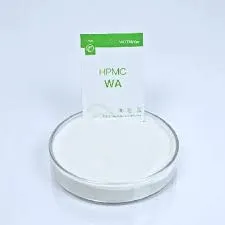
Dec . 13, 2024 07:31 Back to list
Enhancing Adhesion with Effective Mortar Bonding Agents for Construction Projects
Understanding Mortar Bonding Agents Enhancing Structural Integrity in Construction
In the world of construction and masonry, ensuring strong and reliable connections between different materials is crucial. One of the key components that aid in this endeavor is the mortar bonding agent. This specialized product plays a vital role in enhancing the adhesion and performance of mortar, providing builders and engineers with the assurance needed for robust structural integrity.
What is a Mortar Bonding Agent?
A mortar bonding agent is a substance specifically designed to improve the bonding strength between mortar and substrates such as bricks, blocks, and stones. These agents can be organic or inorganic and are available in various formulations. Their primary purpose is to enhance the performance of the mortar, ensuring that it adheres well to surfaces, especially in challenging conditions where traditional mortars might fail.
Types of Mortar Bonding Agents
1. Polymer-based Bonding Agents One of the most common types, these bonding agents contain polymers that provide superior adhesion and flexibility. They are often used in thin-bed applications and renovations where existing surfaces must bond effectively with new mortar.
2. Synthetic Resins These agents offer excellent water resistance and can be applied in environments that experience moisture or water exposure. They are particularly useful for outdoor projects or areas prone to humidity.
3. Cement-based Bonding Agents These are typically mixed directly with the mortar to improve its adhesion properties. They create a chemical bond with the surrounding materials and are ideal for structural applications.
Advantages of Using Mortar Bonding Agents
Using mortar bonding agents comes with several significant advantages
mortar bonding agent

- Increased Bond Strength The primary benefit is the enhanced bond strength between mortar and the substrate. This improved adhesion reduces the risk of cracking and separation, especially under stress or temperature fluctuations.
- Flexibility and Durability Many bonding agents provide additional flexibility to the mortar, allowing it to accommodate minor movements in the structure without compromising its integrity.
- Water Resistance Certain bonding agents improve the water resistance of the mortar, making them suitable for use in environments exposed to moisture or heavy rainfall.
- Ease of Application Most mortar bonding agents are easy to apply and can be mixed with water or mortar, simplifying the construction process.
Application of Mortar Bonding Agents
The application of mortar bonding agents varies based on the type and intended use. Generally, the process involves preparing the substrate by cleaning it of dirt, dust, and loose materials to ensure optimal adhesion. Once the surface is ready, the bonding agent can be applied directly to the substrate before placing the mortar or mixed into the mortar itself to enhance its properties.
Whether for new constructions, renovations, or repairs, the use of mortar bonding agents can significantly improve the lifespan and reliability of masonry work. These agents are particularly beneficial in high-stress applications, such as retaining walls, driveways, and structures subjected to freeze-thaw cycles.
Conclusion
In conclusion, mortar bonding agents are essential components in the construction industry, playing a critical role in ensuring the strength, durability, and longevity of masonry projects. By enhancing the bond between mortar and its substrate, these agents help prevent common issues such as cracking, separation, and water damage. As building techniques and materials continue to evolve, the importance of understanding and utilizing mortar bonding agents will remain paramount for construction professionals aiming to deliver high-quality and resilient structures. Whether you are a builder, engineer, or DIY enthusiast, investing in a reliable mortar bonding agent can make all the difference in your construction projects, ultimately leading to safer and more durable results.
-
Versatile Hpmc Uses in Different Industries
NewsJun.19,2025
-
Redispersible Powder's Role in Enhancing Durability of Construction Products
NewsJun.19,2025
-
Hydroxyethyl Cellulose Applications Driving Green Industrial Processes
NewsJun.19,2025
-
Exploring Different Redispersible Polymer Powder
NewsJun.19,2025
-
Choosing the Right Mortar Bonding Agent
NewsJun.19,2025
-
Applications and Significance of China Hpmc in Modern Industries
NewsJun.19,2025







